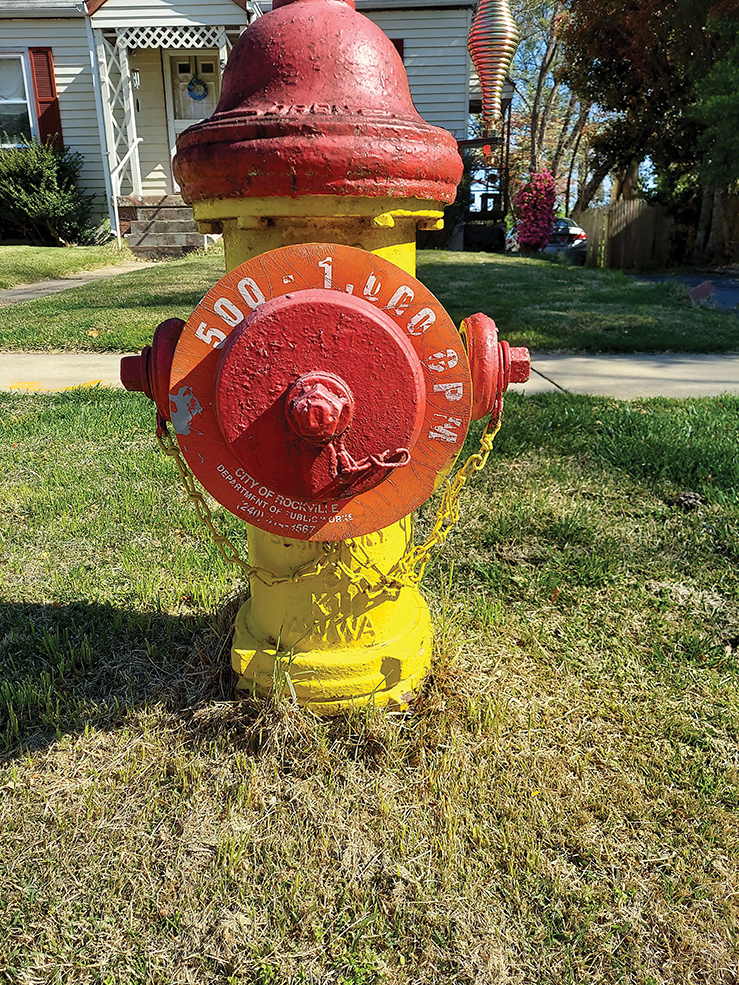
The city is set to reach a milestone nearly a decade-and-a-half in the making with the replacement of its last low-flow fire hydrant, an event that underscores the Mayor and Council’s commitment to maintaining Rockville’s infrastructure.
The replacement is part of the ongoing rehabilitation of the water main on Beall Avenue, which began this spring. The project is part of a 100-year-long city program, launched in 2008, to replace every mile of pipe in the city’s water system. Since the Mayor and Council approved the program, city staff has managed over 22 miles of water main replacement totaling nearly $30 million in construction.
It’s a big job: Rockville provides water and sewer service to 70% of the city, or nearly 13,000 accounts. (The Washington Suburban Sanitary Commission provides service to the rest of Rockville.) To do this, the city maintains 180 miles of water pipes, 4,168 valves and 1,363 fire hydrants. It’s paid for by city water utility customers.
“This last hydrant being removed out of the city’s system should be highlighted as an achievement and a testament to the Mayor and Council funding the water main rehab program,” said John W. Hollida, the city’s engineering supervisor for capital projects.
The water main rehabilitation program aims to replace aging pipes, valves and fittings to increase the system’s reliability. The new pipes will lead to fewer breaks and leaks, improve water quality and provide better water pressure throughout the water system.
While that alone is enough reason for the repairs and replacements, safety is the program’s priority. When the program started, 67 fire hydrants were identified as having water flow rates of less than 500 gallons per minute – below the optimal flow to provide the capacity and water pressure needed to fight fires.
The final hydrant replacement won’t be the end of the water main rehab program. The city will continue to prioritize water main replacements with a focus on pipe age, water quality, water main breaks and pipes with internal corrosion, which reduces water flow.
Learn more at www.rockvillemd.gov/water.